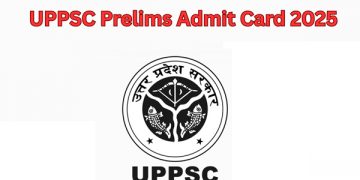A seven-year-old PhD admission list from Delhi University (DU) has resurfaced online, reigniting debate about reservation and transparency in higher education. The viral image, dated 2017, claims that the university admitted Scheduled Caste (SC) and Scheduled Tribe (ST) candidates to its PhD Mathematics programme with a “zero cut-off.” The post has triggered confusion among current applicants, especially as DU’s 2025 postgraduate (PG) cut-off data shows unusually low or even negative scores in several programmes.
However, experts and university officials clarify that the term “zero cut-off” has been misinterpreted, and that the 2017 PhD list and the 2025 PG admission figures represent entirely different situations.
The Viral Claim and Its Origins
The image being circulated shows “0” marks listed as the cut-off for SC and ST categories in DU’s PhD Mathematics admissions. The caption accompanying the post mocks the system, implying that students could gain admission without meeting any academic benchmark.
Fact-checking reveals that the image is from 2017, not 2025. No such PhD Mathematics cut-off list has been issued this year. The old notification has resurfaced without context, misleading many into believing it reflects DU’s current policies.
DU’s Clarification on the 2017 PhD Admission List
In 2017, Delhi University’s Department of Mathematics did publish an admission list that displayed a “0” under the SC/ST cut-off columns. Following widespread criticism, the university explained that the number did not represent zero marks or unqualified admission, but rather served as a placeholder to indicate the absence of a fixed minimum qualifying score for those categories.
PhD admissions at DU are multi-stage:
- Entrance Test – Candidates must appear and qualify.
- Interview & Research Proposal Evaluation – Final selection is based on performance in these rounds.
Thus, a “0” meant that all eligible SC/ST candidates who appeared for the exam could move forward to the interview stage, not that admission was automatic or meritless.
The Mathematics Department that year had an intake of 27 PhD seats, including four reserved for SC and two for ST candidates. Because many seats for reserved categories often go unfilled, the department opted against applying a numerical cutoff to ensure fair representation.
Why the Confusion Resurfaced in 2025
The 2017 controversy has gone viral again just as DU’s 2025 PG admission lists reveal several programmes showing zero or even negative minimum scores in the first two rounds of seat allotment. This coincidence has led many to conflate the two, though the underlying reasons are completely different.
While the 2017 case involved an administrative placeholder, the 2025 figures arise from score normalisation algorithms—a statistical process used to adjust results across multiple exam sessions of varying difficulty.
Understanding DU’s 2025 PG Cut-Offs
In the current 2025 admission cycle, courses such as MA Persian, MA Buddhist Studies, MA Philosophy, MA Arabic, MSc Chemistry, MSc Informatics, and MSc Electronics recorded minimum scores ranging between zero and negative values.
For instance:
- MA Persian began at –19 in Round 1 and rose to 23 in Round 2.
- MA Philosophy (NCWEB) moved from 0 to 39.
- MSc Informatics showed –4 for both UR and SC candidates.
- MSc Chemistry (Hans Raj College) recorded –3 for SC candidates.
These figures do not mean that students scored negative marks. Instead, they reflect relative rankings after normalisation, where candidates’ performance is adjusted against varying exam difficulty levels. This statistical method ensures parity, not dilution of merit.
Reserved Category Cut-Offs and Inclusive Policies
The appearance of lower cut-offs in reserved categories is consistent with India’s affirmative action framework, which mandates equitable access to higher education.
Examples from 2025 include:
- MA Life Long Learning & Extension showing 0 for ST candidates.
- MSc Chemistry (Hans Raj College) at –3 for SC.
- MSc Mathematics Education (Cluster Innovation Centre) recording 0 for OBC candidates.
In each case, admissions remain merit-based, with additional selection stages—such as interviews, document verification, or merit re-evaluation—ensuring academic quality.
PhD vs MSc Mathematics: Different Systems, Different Metrics
The PhD Mathematics and MSc Mathematics programmes operate under entirely distinct frameworks.
- PhD admissions rely on entrance tests followed by interviews and proposal reviews; thus, a “0” in 2017 indicated no lower eligibility threshold for reserved candidates advancing to interviews.
- MSc admissions, however, are entrance-based and centralised under DU’s Common Seat Allocation System (CSAS). In 2025, the MSc Mathematics course at Zakir Husain Delhi College recorded a minimum of 9 marks for ST candidates, showing competitive participation compared to other programmes.
The Takeaway: Context Matters
The resurfaced 2017 “zero cut-off” post has no connection to DU’s 2025 admissions. Each represents a different administrative mechanism and statistical interpretation.
- In 2017, “0” was a placeholder indicating no fixed cutoff for reserved categories in PhD admissions.
- In 2025, zero or negative values result from score normalisation, not declining merit or automatic selection.
As of now, Delhi University has not issued any PhD Mathematics cut-off list for 2025.
Both cases highlight the importance of interpreting cut-off data within context—what appears as “zero” may simply reflect the university’s inclusive policies or mathematical scaling methods, not a relaxation of academic standards.



























































